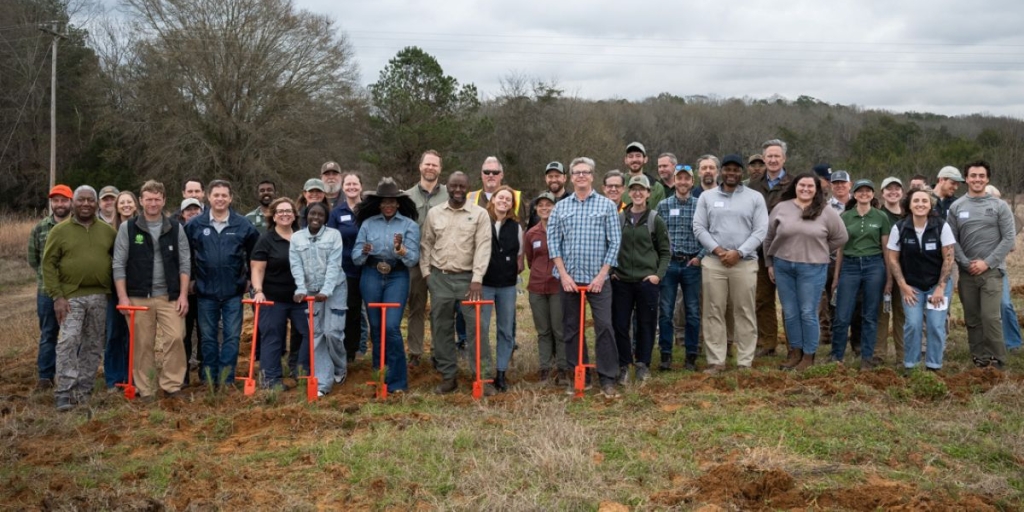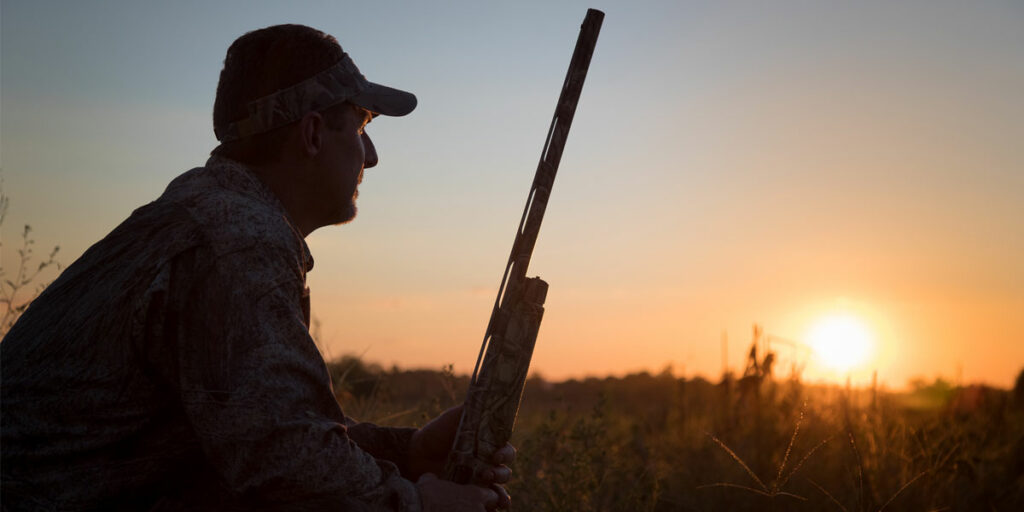Livingston may not be the largest city in Alabama’s Black Belt, but that is not stopping the people who live and work there from enthusiastically leading a growing chorus of voices devoted to growing rural Alabama.
“When you have all of the oars going in the same direction, it’s better on everybody,” said Livingston Mayor Tom Tartt. “I can remember a time when Livingston didn’t want something to happen in York or Sumter County didn’t want something to happen in Marengo County because they’re all territorial. We all finally figured out that if it happens in York, it’s going to help us. If it happens in Livingston, it’s going to help the people in York. I’m exceedingly proud.”
Welcome to Livingston, Alabama from Alabama NewsCenter on Vimeo.
Livingston is located on the Sucharnochee River in west-central Alabama, about halfway between Tuscaloosa and Meridian, Mississippi, along interstate highways 20 and 59. Founded in 1835, the city is named after Edward Livingston, a statesman and jurist. About 3,500 people live there, many of whom join the city’s largest employer, the University of West Alabama (UWA), in elevating the region as a hub of economic growth and workforce development.
“One of the things we’ve really been promoting is the idea of regionalism,” said Tina Naremore Jones, vice president of the Division of Economic and Workforce Development at UWA. “You have a much stronger voice if you work for a region, especially if you’re talking about rural communities. You can leverage your resources better. You can show that you have a larger workforce. You have better capacity that way.”
City and county leaders ramped up those team efforts in 2017 with the creation of the Sumter County Economic Development Leadership Academy, a group of elected officials and leaders from businesses and community organizations tasked with taking an honest look at Sumter County’s future. Their discussions led to the creation in 2018 of the Sumter County Renaissance, a framework to provide economic impetus in Sumter County for job and population growth, new investment, renewed and sustained economic vitality, improved quality of life for all citizens and full participation in the global economy.
“We have a wonderful team,” said Allison Brantley, director of Economic Development at UWA. “We all want Livingston to grow and see its potential. We want the same for Sumter County. In order for it to reach its potential, to keep our students here when they graduate, to bring back those young professionals who’ve moved off, we know we have to work together.”
Bearing fruit
The enhanced focus on regional cooperation quickly began bearing fruit. In October 2019, Enviva announced it would invest $175 million to construct a wood-pellet production plant in Sumter County. Located at the Port of Epes Industrial Park near Livingston, the plant is expected to create a minimum of 85 full-time jobs and generate an estimated 180 additional jobs in logging, transportation and local services in the region, once the plant begins operating in 2023.
“We are privileged to have been invited by the people of Alabama to invest in a remarkable community like Epes,” said Enviva Chairman and CEO John Keppler at the 2019 announcement. “With its thriving forest resources, great local workforce and favorable transportation logistics, we look forward to the opportunity to grow sustainably in west Alabama for decades to come.”
Enviva joins a growing list of timber-focused businesses in the region, including Alabama Pellets and Two Rivers Lumber Co. in nearby Marengo County. Sidney Freeman, executive director of the Sumter County Chamber of Commerce, said landing these and other businesses happened in large part because of the region’s focus on workforce development.
“Workforce development is a priority, especially with new industry coming in,” Freeman said. “We’ve got to have able bodies available to do the work if we’re going to have these industries here.”
Workforce development efforts got a big boost in 2019, thanks to a $2.5 million grant from the U.S. Department of Labor and the Delta Regional Authority. The grant funded a UWA initiative known as LINCS: Leveraging Interconnected Networks for Change and Sustainability, designed to develop a regional workforce based on industry-recognized standards and increase the advanced manufacturing skills sets and employment in the region’s 10 underserved counties.
“If you’re going to recruit industry of any kind, the first thing they’re going to ask you is, if you have a workforce, and you have to prove it,” Jones said. “You can’t have economic development without showing workforce and developing that workforce. That can be from kindergarten all the way through those people who need to reenter the workforce.”
Jones said one of the first priorities of LINCS was the creation of Skills On Wheels, a set of mobile flex classrooms equipped with computers and broadband that can be used for education and employee training. Skills on Wheels eliminates access barriers commonly found in rural areas.
“In a place where you may not have the digital access and the broadband access to do some of this training, we take it to them,” Jones said. “We recently had a local industry who was having AIDT come and do training on their site and they weren’t really sure about some of their internet connections, so they called us. We trotted out the mobile unit. Their employees had a wonderful experience.”
‘Team Broadband’
Everyone involved in growing Livingston and Sumter County agrees the greatest challenge is access to high-speed internet. Sumter County Commission Chairman Marcus Campbell said broadband access is the fuel the region needs to ignite growth.
“It is a must-have,” Campbell said. “Anytime you look at recruiting industry, you look at your school systems, you look at telemedicine – all of those things that you need in order to go forward – broadband is up there. A lot of times our young at heart – our seniors – don’t have that transportation to get to that specialist they need. With broadband, that senior that lives in Whitfield can be talking to their cardiologist at UAB. That farmer – if that tractor breaks down and they’re trying to plant or gather crops, if they need to get a specific part right away, they can just pull out their phone or device and order the part right away.”
Broadband currently exists in parts of Livingston and areas of Sumter County, but Campbell said the region will prosper when broadband is expanded to all parts of Sumter County and the Black Belt. To accelerate that process, Campbell said a team of government and business leaders is busy laying the foundation necessary for high-speed internet providers to expand broadband access.
“We’re working to make sure we have everything in place so that when the connectivity can happen, we already have the road map,” Campbell said. “I can’t thank Alabama Power enough for their dedication to this particular area. Industry will be pouring in because of that connectivity and we will be vibrant and strong. ‘Team Broadband’ has laid the foundation.”
Education also benefits from the team focus on broadband. UWA created University Charter School (UCS) in 2018 as part of an effort to provide new, higher-quality public education options for students and families. JJ Wedgeworth of UCS said students are thriving thanks to the relationships developed with community and business leaders.
“We’re supporting one another,” Wedgeworth said. “We’re hearing what their needs are in terms of a workforce and they’re providing us with opportunities for students, relationships and scholarships. It’s great.”
Freeman said the region’s intentional efforts to improve career education are improving quality of life for families and helping her and others recruit business.
“We’re very proud of our education system,” Freeman said. “If you have a company that is looking to relocate here, their wife has got to love it here. Their husband has got to love it here. They’ve got to have a great education system for their children, too. It’s really important to have those things so that your community is attractive.”
Deep roots
Beyond the curb appeal of the region’s economic and workforce development efforts lies a thread that binds business with pleasure and culture with success.
“Sumter County is a great place to live, work and play. I had the great opportunity to go abroad, live in other countries and bounce an object that weighed 7 to 9 pounds,” said Campbell, who played professional basketball in Spain, France, New Zealand, Iran and Qatar. “It is just awesome to be here. Sumter County is not just a retirement place. It is a place where you can come and enjoy yourself.”
Among the amenities is 54-acre Lake LU on the UWA campus that provides facilities for fishing, boating, hiking and birdwatching, as well as Jaycee Neighborhood Park that offers baseball and softball fields, areas for picnics, a swimming pool, tennis courts and playground equipment.
“You’ve got all of the recreational amenities here,” said Tartt. “If you want to do something outside in this part of the state, you can do it 11 months out of the year. It’s a lot of positives.”
Among the tourist attractions are a 160-year-old covered bridge and the city’s 164-year-old bored well famous for its salty, alkaline water. The area is rich in fossils, including mosasaur bones from dinosaurs made famous in “Jurassic Park.”
“We are probably one of the best areas for fossil hunting,” Jones said. “Encouraging our young people to discover where they live and be proud of their backyard is important.”
Jones said newcomers are often surprised at how much they come to love the region’s quality of life.
“It’s kind of like peeling an onion,” Jones said. “I think they are amazed at the deepness of the layers of it. They come here and they are attracted for certain reasons and then they discover a whole new level of reasons to stay. That’s what you see when you come to west Alabama and Alabama’s Black Belt – it is a place where you can discover almost anything.”
Livingston is deeply rooted in rural living at its best, beyond the rich soil that gives the region its name.
“If you think what’s special about small-town America, we embody that,” Tartt said. “Neighbors know their neighbors. We take care of each other. It’s a very safe community and a great place to work and raise your family. We’d love to see you here.”
(Courtesy of Alabama NewsCenter)













